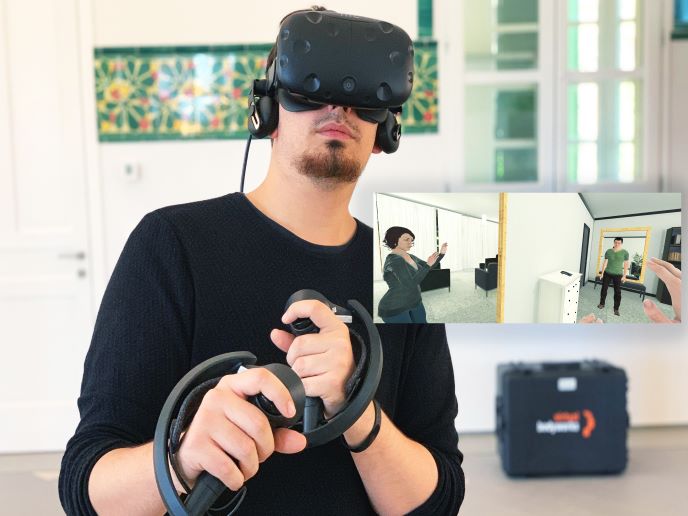Catching up with VRespect.Me: Fighting domestic violence through an innovative VR solution
The core of the VRespect.Me (Virtual Environments for Rehabilitation of Gender Violence Offenders) solution is to give someone the embodied perspective of being the victim of domestic abuse. When this is done with domestic abuse perpetrators, they can see, feel and hear for themselves how their actions impact their victim. This is achieved through the latest Virtual Reality (VR) technology, specifically a headset and the use of a virtual avatar. When we last spoke to Charlie Pearmund, the regional Catalonian government – Virtual Bodyworks is based in Barcelona – had bought VRespect.Me for use in one of the region’s prisons. “The system is now used in six Catalonian prisons,” Pearmund tells us.
2020: A big year for VRespect.Me
Since the formal end of the VRespect.Me project, Pearmund and his colleagues have been extremely busy promoting their technology and their experience, with 2020 proving to be a very fruitful year for them. “In 2020, a new project funded by the EU’s Rights, Equality and Citizenship Programme started called www.vrpergenere.eu (‘VR per Genere’),” Pearmund explains. “In this project, VRespect.Me is being extended to not only the rehabilitation of abusers, but also the prevention of gender abuse amongst the young.” Alongside this, and based on preliminary results, VRespect.Me will be used with general populations in order to decrease victim blaming, another building block when increasing awareness of gender violence and aimed at prevention. Then, of course, there’s the ever-present pandemic. “During the COVID-19 pandemic, a further increase in women victims of gender violence has been reported, particularly during periods of lockdown,” says Pearmund. “Therefore, an already endemic problem across the world has become a much larger problem.” Indeed, many governments have clearly stated that one of the only legitimate reasons to leave the house during lockdowns, alongside usual activities such as exercise and essential shopping, is to escape domestic violence. “Gender violence is a multidimensional and complex matter that requires many different approaches,” Pearmund concludes. “And as the pandemic has shown us so starkly, it really is a very important health and societal issue. Immersive virtual reality will be just one method to really tackle this problem once and for all.” Indeed, he and his colleagues continue to be dedicated to the further rolling out of VRespect.Me with interest in the system now coming from many countries, including some as far away as Australia.



